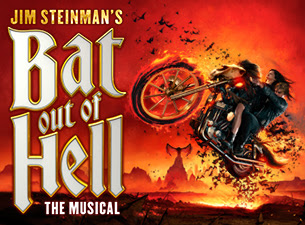The Fault in Our Stars Review
Like many teenage girls, the first John Green novel that I
had read was ‘The Fault In Our Stars’. I decided I wanted to read it before I
watched the film last year; however even a year later, the book had still stuck
with me, but for all the wrong reasons.
For those of you who have been living under a rock, the
story is centred on Hazel, a teenage cancer patient who finds herself falling
for cancer survivor, Gus. This heart-breaking novel is one of love, life and
loss, which, even if you disliked it like me, is sure to leave you in tears
(although they could be tears of bitter disappointment).
The character development is, quite simply, poor, to the
point where I feel that if you take the aspect of cancer out of the plot,
you’ll only be left with empty shells where a character should be. Not a single
one of them is relatable, especially Hazel who I personally couldn’t stand.
I understood her realist nature and her hatred for all
things sugar-coated; however, I also found her to be very vicious and nasty as
a person, meaning it was difficult to warm to her. She came across as rude and
ungrateful, and thus made me lose any form of sympathy towards her. This isn’t
me being insensitive towards cancer sufferers; it’s me being insensitive
towards a nasty person. If you want be to like a character, at least make her
likeable.
As for Gus, he was heavily pretentious and somewhat
unrealistic. Not only did the pair speak to each other in a crossbreed of
Shakespeare and monologues (including before a somewhat unnecessary sex scene),
but he also speaks in constant metaphors; the most irritating metaphor of all
being the cigarette one, which literally made me physically angry. It was not
only ridiculous, but it also just heightened the fictional nature, thus making
it more difficult for me to submerse myself in the novel. In fact, I only cried
at the book because I am in a relationship and found the thought of my partner
being terminally ill heart-breaking.
The romance between the duo was also unrealistic, and to an
extent, even questionable. The two appeared to go from acquaintances to “in
love” within the space of seconds, which did then further make me question
whether they were truly in love, or were just in love as they both had cancer
at one point in their lives. The whole relationship just seemed rushed and the
kiss at Anne Frank’s House was, too me, unnecessary and inappropriate.
On a positive note, one thing that I did find realistic was
the mentioning of An Imperial Affliction. It wasn’t until I googled it that I
realised that it wasn’t actually a real book, which is a shame as I really
wanted to read it. On the other hand, this book lead to a slightly more
unrealistic aspect, which was Peter Van Houton.
For me, Van Houton rang a million alarm bells, as not only
was he a middle aged man talking to a teenage girl, but he also makes a cancer
patient travel half way across the world just to see him. Which leads to my
next question of “WHY THE HELL DID HER MOTHER LET HER DO THIS?!”.
I could go on and on about this book for ages, but I feel as
though now is the time to wrap this up. I did not enjoy this book; it was
predictable and full of badly developed characters. The plot is dull and
tedious, and I can only hope that the film is, for once, better.
The Fault in Our Stars? More like the fault in our plotline
and character development.



Comments
Post a Comment